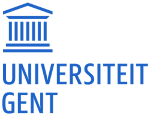International Symposium for the Korean Peninsula Marine Global Project
Ghent University Global Campus holds the 2021 International Symposium for the Korean Peninsula Marine Global Project on November 26.
The symposium will offer insightful ideas and discussions toward sustainable development by integrating blue bioeconomy and blue carbon. It features a series of presentations and discussions from 10 countries. The first session is dedicated to the exploration of blue bioeconomy potentials in the tidal flats and their utilizations, such as food, pharmaceuticals, cosmeceuticals, and renewable energy. Session 2 addresses blue carbon in tidal mudflats and examines viable options for achieving carbon neutrality.
Overview
The ocean has been the source of economic prosperity and is vital to the future of humankind for its role in creating more sustainable life. The so-called blue bioeconomy is driven by a combination of fast growing world population, intensifying nutritional challenges, dwindling natural resources in search for sustainable alternative resources from lower trophic levels, and responses to climate change.
Surrounded by seas, Korean Peninsula embraces a great habitat of Gelidium, which is one of the most coveted seaweeds in the world, and incubates blue potentials on its west coast that offer precious essentials to various sectors and to itself through its ecosystem services. The Gelidium cultivating project called Red Gold, in a joint effort with the marine networks, scientists and Korean government, aims to stimulate blue bioeconomy through ecosystem-based management and seeks for viable options and methods while maintaining biodiversity.
Biodiversity is the basis of the ecosystem that keeps our planet healthy. It can be easily observed in mudflats that are home to numerous plant and animal species that contribute to important ecosystem functions, including carbon absorption from diatoms, the blue carbon. Mere 1% loss of blue carbon ecosystem is equivalent to emissions from millions of cars, whereas the tidal mudflat can absorb carbon dioxide emitted from 110,000 cars per year. This suggests feasible means to achieve net zero emission by 2050 for the Korean government since the peninsula holds a vast tidal mudflat.
The Korean peninsula has much to offer to the world in terms of sustainable life, and the world must keep vigil on the blue bioeconomy for the sake of our planet and for ourselves as a whole. The symposium aims to share findings and insights from the international marine networks, and to bring the world one step closer to achieving carbon neutrality by the year 2050.
Hybrid event
Given the COVID-19 situation the symposium will be held as a hybrid event, where domestic speakers and guests will take part in the event from the Ghent University Global Campus in South Korea, while overseas speakers will participate virtually via the webinar platform. The event will also be streamed live for online audiences.
live streaming: https://www.youtube.com/watch?v=v7bzfalKSwA
Please click here to see the Programme :
More information: http://marinesymposium.org/
